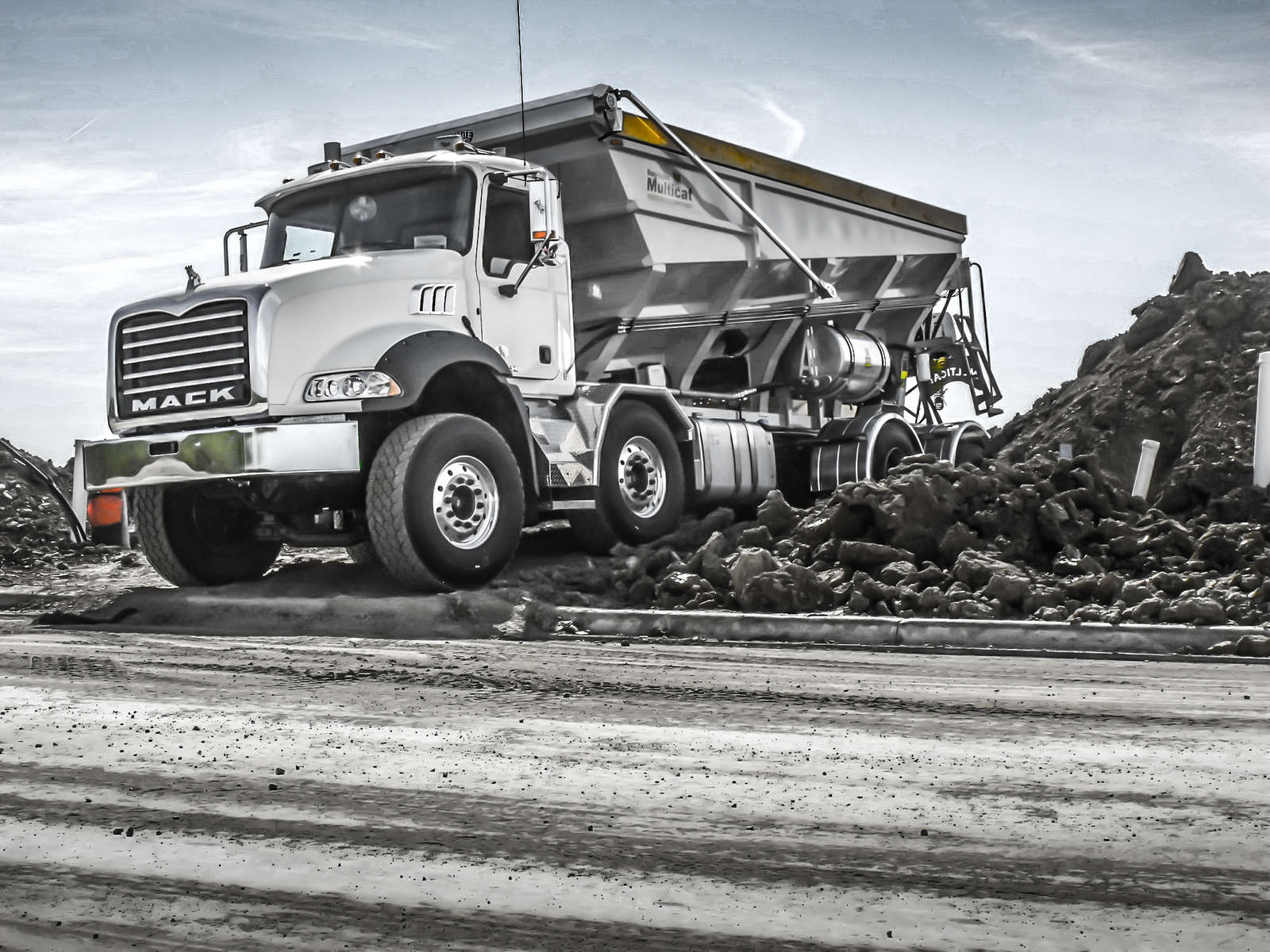It's once again that time of year. The heat of the summer has subsided, and the temperatures are gradually cooling. It's time to be proactive and get your diesel vehicle ready for winter if you want it to be there for you when you need it most. This checklist is intended to help you prepare for the upcoming freezing conditions. It includes checking the state of your batteries, putting an anti-gel fuel additive to the tank, changing the engine oil, and more.
1. Inspect your batteries
Between two and five years is the typical battery lifespan. How long have you owned yours for? Winter has a tendency of destroying weak batteries after they endure a hot summer (when corrosion and fluid evaporation often occur), then a lack of cold cranking amps capability once cooler temperatures approach. Now is the perfect time to check the condition of your batteries to prevent becoming stuck.
Connect your multimeter to the battery leads when the engine is off and set to any voltage setting more than 15 volts. At least 12.6 volts should be present in a fully charged battery. As you start the engine, watch that the voltage doesn't go below 10 volts (below 10 volts is a sign of a dying battery). The voltage should be between 13.7 and 14.7 volts while the engine is operating. Ensure that the battery cables are clean as well for a connection that is corrosion-free. Last but not least, it's a good idea to check the output of your alternator (they don't last forever, either), as a unit that is unable to recharge the batteries may cause the vehicle to not start, which will result in a double-whammy repair bill (new batteries and alternator).
2. Glow plug replacement and test
Make sure your diesel engine's glow plugs are in peak condition before winter sets in if it uses them to help with cold starts (all Duramax and Power Stroke engines do). Glow plug failure is a common occurrence in the Duramax category. Because of this, many people decide to put off changing them while the vehicle looks to start well (in the spring or summer), only to regret it in the autumn and winter. Fortunately, all Duramax engines (as well as the majority of Power Stroke engines) have externally accessible glow plug banks that may be reached by removing the inner fender well.
Of course, it's always a good idea to start with brand-new glow plugs. One thing to keep in mind if you choose this course of action: never skimp on them! As some aftermarket glow plug tips have been known to bloat, shatter, or break off and drop in-cylinder, stick with brand-new, OE replacements. When a glow plug or glow plug relay breaks in an engine that doesn't always display a CEL (like the 7.3L Power Stroke in the picture), it pays to check that everything is in working order by using a test light.
3. Use the block heater
You won't believe how many diesel owners choose not to use their block heater when the weather drops below zero. And more often than not, it's because the owner is unaware that the vehicle even has one!
Do yourself a favor and check for a block heater under the front bumper and grille if you're not sure whether or not you have one. Anyone who lives in or above the rust belt would be wise to invest in one if they don't already have one.
4. Check the block heater
A block heater may save your life in very cold temperatures. Unfortunately, most diesel owners are unaware that their vehicle has broken down until they really need it. Don't be this person. It is easy to check the operation of your block heater since they either operate or they don't.
To measure resistance, first, clean the plug's prongs. Then, take out your multimeter, set it to ohms, and connect its leads to the plug's prongs. A functional block heater is indicated by a value of 9 to 25 ohms. If it falls below that, you should check the block heater cable itself. Wires have been ripped out of plugs in our experience, generally as a result of straining the cable to reach an outlet, necessitating a quick wiring fix.
5. Use an anti-gel fuel additive
Even the finest winter blend diesel fuel may reach its cloud point (the indicator of diesel's operability at low temperatures) and start to gel up in very cold temperatures. There is no set temperature at which diesel starts to gel since there are so many variations in fuel quality throughout North America and because each vehicle will experience cold weather differently. The majority of fuels, however, reach their cloud point between 20 and -18 degrees Fahrenheit. This is why using a diesel additive in the winter is always a smart idea. Use an all-season additive or one created especially to perform well in cold regions.
6. Change fuel filters
It is a fact that the most typical freezing point for diesel fuel is the fuel filter. When your vehicle is left to sit overnight, very little diesel is left in the fuel filter in comparison to what is kept in the fuel tank.
While replacing your diesel filter now doesn't ensure that you won't have gelling problems, it does provide you with a fresh start over a cartridge that may have been partly blocked after thousands of miles of usage. Additionally, if you replace your diesel filters before winter, you'll be less likely to need to do it then when it's the coldest. Keep an additional fuel filter and/or water separator in the cab at all times; you never know when you may need them.
7. Drop the pounds
In addition to being difficult on your batteries, starter, and engine during cold starts, traditional 15-weight motor oils melt in very cold temperatures. The cold temperature flow properties of oil may be substantially improved by switching to a lower-weight (ideally synthetic) oil, which will save wear and tear on the engine's internals.
Remember, your engine won't experience enough oil pressure for a long period of time after a cold start (between 5 and 30 seconds!) if you're still using good 'ole 15W-40 conventional when it's 30 below zero.
Final words
If you can adhere to these tips, you will not have to face any issues when driving your 18-wheeler on the road during winter. It can deliver a smooth and hassle-free driving experience at all times.



.webp)
%20(1).webp)



